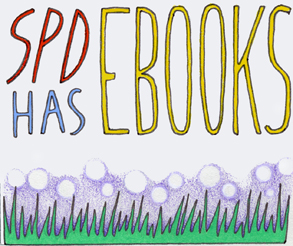Publishing Talks: David Wilk interviews CLMP Director Jeffrey Lependorf
December 20, 2012 by David
Filed under Ebooks and Digital Publishing, Publishing History, PublishingTalks, The Future
 In this series of interviews, called Publishing Talks, I have been talking to book industry professionals and other smart people about the future of publishing, books, and culture. This is a period of disruption and change for all media businesses. We must wonder now, how will publishing evolve as our culture is affected by technology, climate change, population density, and the ebb and flow of civilization and economics?
In this series of interviews, called Publishing Talks, I have been talking to book industry professionals and other smart people about the future of publishing, books, and culture. This is a period of disruption and change for all media businesses. We must wonder now, how will publishing evolve as our culture is affected by technology, climate change, population density, and the ebb and flow of civilization and economics?
I hope these Publishing Talks conversations can help us understand the outlines of what is happening in the publishing industry, and how we might ourselves interact with and influence the future of publishing as it unfolds.
These interviews give people in and around the book business a chance to talk openly about ideas and concerns that are often only talked about “around the water cooler,” at industry conventions and events, and in emails between friends and they give people inside and outside the book industry a chance to hear first hand some of the most interesting and challenging thoughts, ideas and concepts being discussed by people in the book business.
Jeffrey Lependorf has an unusual perspective on publishing. He is the Executive Director of two nonprofit organizations: both the New York City based Council of Literary Magazines (CLMP) and the Berkeley, California based Small Press Distribution (SPD). CLMP provides support services to and advocacy for literary magazines and independent literary presses, while SPD provides distribution and sales services to the same general constituency (though not always the same presses and magazines). Both organizations have been on the scene for many, many years and their identities and services have changed significantly over time.
While the overall publishing industry has undergone sea changes in physical retailing and wholesaling that have created challenges for commercial publishers, those changes have caused massive disruption for hundreds of smaller literary presses and magazines, mostly by reducing their retail viability and forcing them to look for other means of reaching readers, including innovative approaches to digital publishing and direct to consumer sales. Independent presses and magazines may be quietly creating some incredibly valuable and interesting approaches to connecting with readers that could provide long lasting benefits for them, and models for larger publishers to emulate.
In this conversation, I took advantage of Lependorf’s unique perspective to discuss the past, present and future of independent literary publishing, both books and magazines, as well as some of the digital initiatives they have undertaken, and the specific activities of both the organizations he operates. It’s worth visiting both the CLMP and SPD websites. If you’re interested in what independent publishers are doing, CLMP has alot of information; if you’d like to see the books and magazines (and ebooks) that independent publishers are producing, visit SPD, where, it is important to note, you can browse and buy thousands of unusual and important publications directly (even though they also distribute to retailers like Amazon, B&N and many independent bookstores). Support independent literary publishing by buying their books whenever you can.
By the way, Lependorf has another career as a composer and performer whose work I also admire. Amazing stuff from an amazing person!
 ALERT: this is another relatively long podcast, just over 43 minutes, but I believe it’s well worth your time.
ALERT: this is another relatively long podcast, just over 43 minutes, but I believe it’s well worth your time.
Podcast: Play in new window | Download
